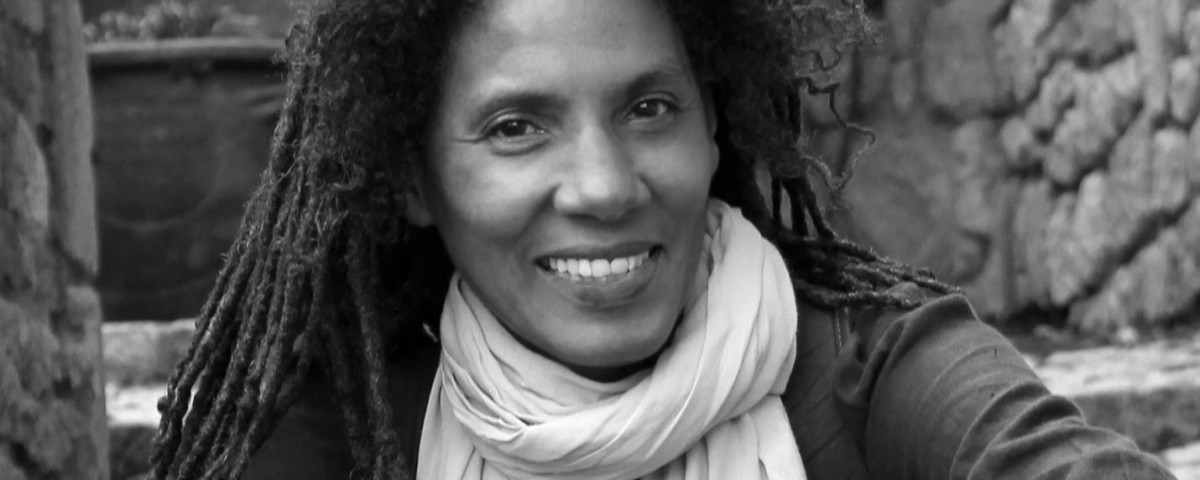There Are Increasingly More and More Positive, Strong and Motivating Representations of Black Women
by Rian de la Torre, translated by Melissa Wise, June 27, 2016.

Beti Ellerson is
passionate about helping African women tell their stories through their
cameras so they can talk about a different Africa than the one we are
used to seeing in traditional media.
And who is Beti Ellerson? Well, she is an American filmmaker, scholar, and activist as well as the director of the Centre for the Study and Research of African Women in Cinema, work that she combines with editing the African Women in Cinema blog, teaching, and other film projects.
Beti produced a film entitled Sisters of Screen and the series Reels of Colour that
aired from 1997 to 2000 in the United States. She also holds a
doctorate in African Studies with a minor in African Film Studies and
Women’s Studies.
She is a fervent feminist who has published and spoken
widely on the subject of African women. In 2011, she was awarded the
“Distinguished Woman of African Cinema Award” by Zimbabwean
female filmmakers.
Without further ado, here I leave you with the interview I had the pleasure of conducting with Beti.
Global Voices (GV): Why are you interested in African cinema?
Beti Ellerson (BE): Because
in African cinema, I find a direct way of connecting with African
affairs in a more realistic and profound way. Academically, it has been a
teaching and learning tool that I’ve been able to employ using an
interdisciplinary approach: women’s studies, history, language,
literature and culture, sociology, anthropology and even science and
philosophy.
GV: What is your definition of feminism?
BE: Generally
speaking, I see feminism as a way of thinking, a logic through which one
can live and experience life in terms of how it relates to gender
equality and I also see feminism as a concept that can be used
theoretically to frame questions about gender, positionality and
identity. I’ve been a feminist for a long time, so for me, it has been a
political and personal process.
GV: Since the Centre for the Study and Research of African
Women was founded in 2008, do you think that female African filmmakers
have achieved greater visibility and recognition?
BE: I would say so,
but not because of the Centre. Universally, I have seen an evolution in
the discourse surrounding the representation of women of color in the
past decade. This is also a result of the ubiquity of new technologies,
and especially because of the internet and social networks, the work of
African women has experienced greater prominence and appreciation. In
terms of research and study, I would like to think that the Centre and
my work on African women in film has had an impact on scholarships and
discourse in the fields of African Cinema Studies, Women’s Studies, and
Feminist Film Criticism.
GV: Is there enough support for African women to become filmmakers?
BE: While there
could be more, I must say that there has been a phenomenal increase in
the interest and support for the filmmaking endeavors of African women
locally, continentally, and globally. Again I point out the emergence of
new technologies in the 21st century as the major factor in the surge
of this support. Now many women have access to advocacy platforms and
strategies to reach a wide audience allowing their voices to be heard
around the globe. And, in fact, people are listening to them!
GV: What advice would you give to an African woman or a woman
of African descent who wants to start a career in the film industry?
BE: With an
ever-evolving visual culture, I would extend “the film industry” to
include the new media that are redefining “cinema.” Also, as I have
stated before: it is important to emphasize the significance of those
who have come before, to pay attention to their words and learn vital
lessons from their paths. By listening to their words, we hear many of
the reasons why they arrived at film: to tell stories, to show a
realistic image of Africa, to turn the stereotypical and one-dimensional
depiction of Africa upside down.
GV: Where do you get the motivation to carry out your projects?
BE: I get motivation
from my desire to share knowledge, to support and promote the
stories, works and experiences of African women, the elderly, and female
pioneers on the screen.
GV: Does the fact that more African women are involved in the
film world change female body image and stereotypes that have been
projected onto the black female body?
BE: That has been
the big goal for some time although the results are somewhat mixed. On
the plus side, there’s been an increase in realistic images, which
counter stereotypes.
On the other hand, with the proliferation of
content and media to disseminate that image, there is still more work to
do to ensure that such stereotypes are being corrected.
But yes, in
fact, there are increasingly more and more positive, strong and
motivating representations of black women.
SOURCE: Global voices


